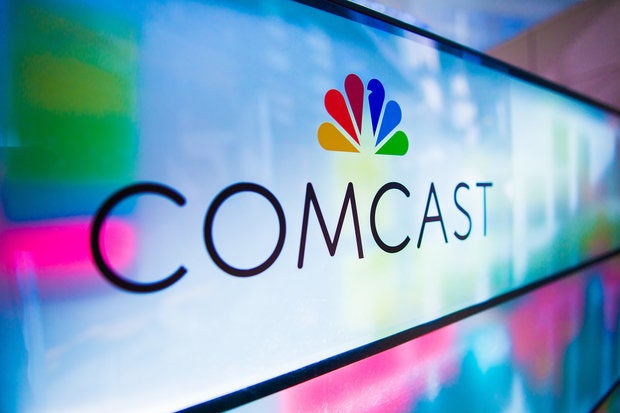Comcast is the largest broadcasting and cable company in the world. It’s also the largest Internet service provider in America and the third-largest telephone company in the country. Hey,
it's even into thermostats. In 2014, Consumerist declared it
the Worst Company in America; now the company is doing everything it can to ensure that it wins again this year by rolling out 300 gigabit data caps. Use more than this and you'll be charged for the extra. It’s all about “fairness,” as
a cable company flack with a famous dad noted last year:
When nearly 40 percent of the nation’s downstream bandwidth is utilized by 1 percent of broadband subscribers, it’s unfair to ask lighter users (i.e. paying bills online or checking email) to subsidize super-user activity.

Leaked doc: "It's not a cap!" (Photo: Comcast)
Except now leaked documents show that, oh by the way, it’s not a data cap, because you can buy as much as you want, and it’s definitely not about congestion management. No, again it’s about “Fairness and providing a more flexible policy to our customers.”
Or could it be that Comcast has a bigger problem: the Internet is eating its cable business, and instead of promoting innovation in the Internet, the company is trying to throttle it.

Top 5 Internet bandwidth hogs. Blue = 2008; Black= 2013 (Photo:
Statista/click here for full graph)
Internet use per capita is much lower in the United States than some other countries where they have cheaper, faster, cap-free Internet, where they're actually trying to promote innovation in Internet use. Look at the data use in South Korea, which happens to make so much of the best Internet tools we use, from phones to big screens. Yet even in America, it has still grown from 2 to 15 gigabytes per person between 2018 and 2013 and is growing faster with services like Netflix and Amazon delivering more original content online only.

The future's so bright, you gotta wear shades. (Photo: LG Group)
Only 12 percent of Comcast’s customers are hitting the cap now, but wait until the 4K screens start arriving in quantity. If you haven't seen these yet, believe me, you will want one;
the quality is incredible.

You're going to want that 4K TV, believe me. (Photo:
Cisco/ see report here)
Cisco estimates that by 2019, 30 percent of screens will be 4K and these will gobble 300 GB in, by my probably wrong calculation, just over two hours at the 40 Mbps rate that 4K looks best at. At American broadcast maximum of 19 Mbps, make that five hours. At Comcast's overage rate of $10/50GB, that's $30 per hour. I think people might balk at that.

Global Cord Cutting Generates Double the Traffic. (Photo:
Cisco/ see report here)
Even if people don't buy the fancy TVs, more and more of them are cutting the cable, which makes all those pay TV channels that Comcast owns invisible. Since a cord cutter uses twice as much bandwidth, it's in Comcast's interest to make it very expensive to do so.
When a company owns the content, with its NBC network and its numerous cable TV channels, and the delivery system with its cable network, it should be no surprise that it's not exactly jumping up and down promoting broadband that could make this all superfluous. It’s the kind of behavior that regulators might think was uncompetitive, and a Teddy Roosevelt type might break up the communications trusts the way he did the oil trusts. But hey, this is America in 2015, they don’t do that anymore.















